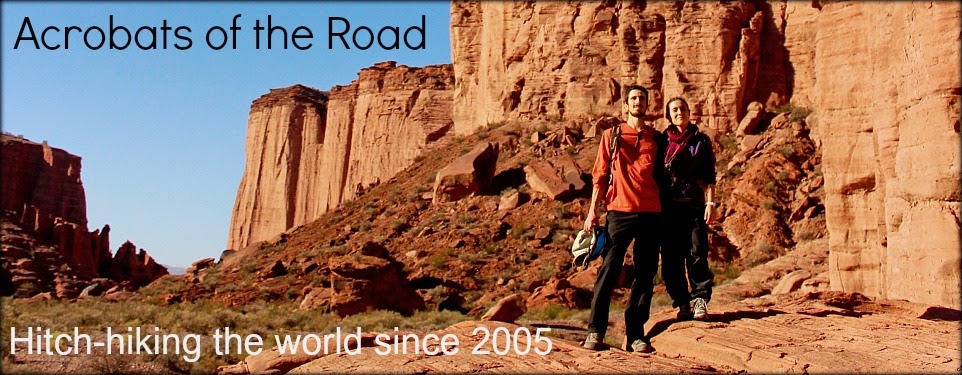
Next morning I said goodbye to my Rasta friends in Uzupis and hit the road with Gdansk as a target, on the Baltic Coast, in Poland. I had to go around the border of Kaliningrad, a Russian province in the middle of the Baltic Coast, which is to Russia what French Guyana is to France. In Vilnius there were another four hitch-hikers. One of them emitted such desperate signals that he seemed to be trying to land dome invisible airplane. I walked two kilometers along the highway and asked directions in a gas station to a guy in a Yamaha YZF600. Nathaniel spoke perfect English because he lived in Dublin. The Irish experience linked us, and he acceded to take me some 100 kms to Kaunas. The work exile of Lithuanian population takes to this situations, almost all my drivers speak some foreign language, even Portuguese in an occasion.


Today, however, I am going to meet a person for whom exile has meant something different. It’s night already, and I have decided to camp in the first village I stumble upon, not far from a town caled Pilviskiai. I see people around a house, who are listening to some music. It seems a party is going on. So I try the “tea cup” contact method. I am soon invited to join Saulius birthday celebration. In the garden there is a BBQ, and a table with sandwiches and vodka bottles. But that family celebrated something else: Saulius is professional soldier, and three days ago he came back from Basora, Iraq, where he had stayed for six months. With a scratch after having completed infinity of demining missions along with the Danish Legion, his family has reasons to feel glad. But not everything is joy. Saulius shows me his tattoo, a dragon with 13 crests, one for each Danish friend who died in combat. Lithuanians didn’t suffer casualties. We toast, I am happy my expectations were again surprised: I was waiting to camp under a tree and I found a birthday party instead. For Sauliuis, an uninvited guest that comes straight out of the road speaking English, a language narrowly linked with his particular foreign experience, is also a meaningful event.

I crossed the Polish border without complications. I leave behind rural Lithuania with its monoblock villages. I need two rides to make it to Gdansk. The first is a man who earns his living from exporting fertilizers. The second is a trumpet player and his family, rushing to a presentation in occasion of the 25th anniversary of Solidarity, the movement founded by Lech Walesa. Gdansk has a pride past of autonomy and prosperity. It was in fact Free City with the background of colossal Prussia and Poland. It was hanseatic city, and it afforded the sad luxury of triggering WWII and the extravagance of cauterize its wounds, when Walesa organized the first free Trade Union. It was night when I got there, with a 2 zloty coin that was actually a pocket leftover from a friend's trip to the country. A train ticket to the meeting place with Kinga was 2,72. The woman in the ticket office was nice; I jumped on board, and met my new hosts.


No comments:
Post a Comment